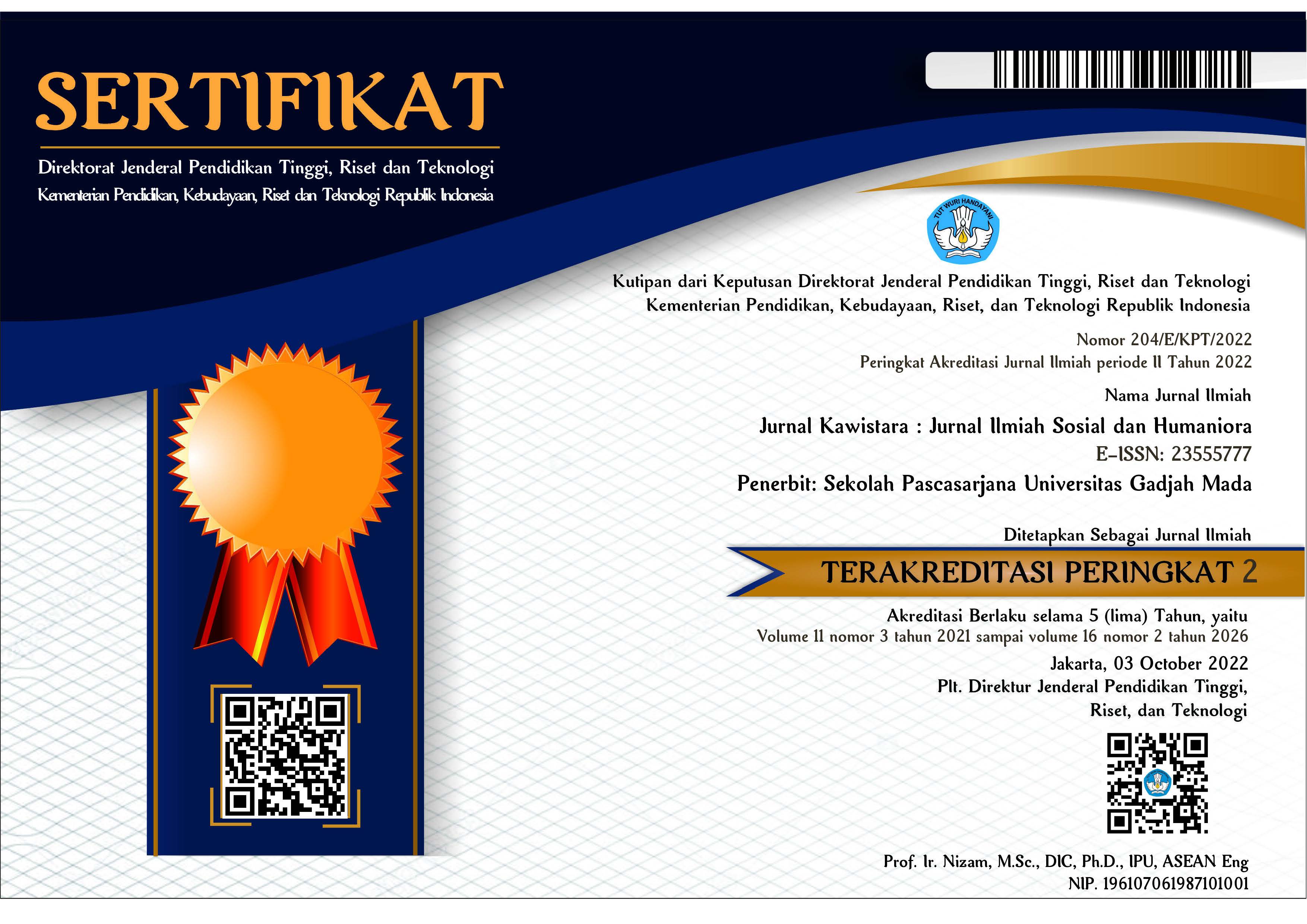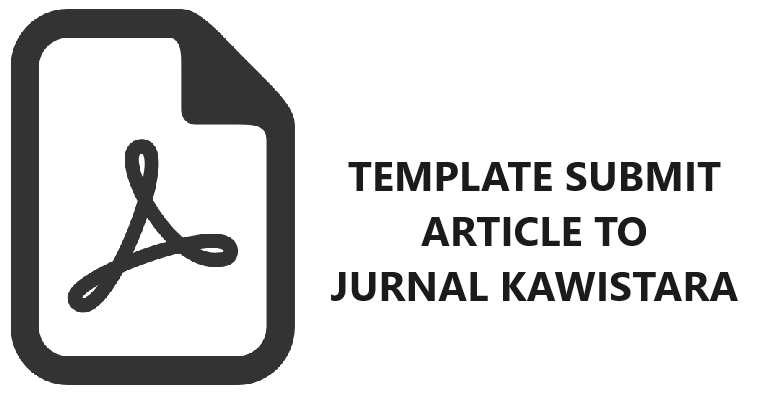How Can Rice Farmers Gain Profit? An Analysis of Sharecropping Practice among Farmers, Landowners, and Laborers in Sukadiri Subdistrict of Tangerang
Lorenta In Haryanto(1*), Aprilia Zirli Kurniaji(2)
(1) Universitas Muhammadiyah Jakarta
(2) Universitas Muhammadiyah Jakarta
(*) Corresponding Author
Abstract
The production of rice as one of the main staple foods in Indonesia has been affected by changes in land-use that has led to a shift in land ownership. It is necessary to discuss whether the profit-sharing applied among farmers, landowners, and laborers provides benefits for farmers. This study aims to determine the characteristics, income, and efficiency of lowland rice farming with both a 50:50 crop sharing between farmers and landowners, and an 80:20 crop sharing between farmers and laborers. This study is based on survey and interviews on the sharecropping practice among rice farming community in the dry season (April – September) tahun 2022 in Sukadiri Subdistrict of Tangerang. Farming parameters are explained descriptively, and the farm efficiency is determined by the revenue-cost (R/C) ratio. A total sample of 44 farmers was determined purposively and proportionately. The findings demonstrated that rice farming gained a total income on the explicit cost of IDR7.311.519 per hectare. The R/C ratio of explicit cost for the sharecropping system is 4,76. Suppose the sharecropping system is replaced with a rent cash payment, the R/C ratio for total cost is 0,83 which results in a loss. This study concludes that the combination of 50:50 crop sharing with the landowner and 80:20 crop sharing with double-tapping laborers is beneficial for the existence of rice farming.
Keywords
Full Text:
PDFReferences
Abdullah, Rabbi, F., Ahamad, R., Ali, S., Chandio, A. A., Ahmad, W., Ilyas, A., & Din, I. U. (2019). Determinants of commercialization and its impact on the welfare of smallholder rice farmers by using Heckman’s two-stage approach. Journal of the Saudi Society of Agricultural Sciences, 18(2), 224–233. https://doi.org/10.1016/j.jssas.2017.06.001
Ahmed, M., & Billah, M. (2018). Impact of sharecropping on rice productivity in some areas of Khulna District. Bangladesh Journal of Agricultural Research, 43(3), 417–430. https://doi.org/10.3329/bjar.v43i3.38390
Alagbo, O. O., Akinyemiju, O. A., & Chauhan, B. S. (2022). Weed Management in Rainfed Upland Rice Fields under Varied Agro-Ecologies in Nigeria. Rice Science, 29(4), 328–339. https://doi.org/10.1016/j.rsci.2021.11.004
Baah, K., & Kidido, J. K. (2020). Sharecropping Arrangement in the Contemporary Agricultural Economy of Ghana: A study of Techiman North District and Sefwi Wiawso Municipality, Ghana Kwasi. Journal of Planning and Land Management, 1(2), 50–62. https://doi.org/10.36005/jplm.v1i2.22
Bahagia, B.-, Wibowo, R., Mangunjaya, F. M., & Al-Wahid, M. A. (2020). Resilience of farming labours based on bawon system tradition and ani-ani traditional appliance in indigenous community of Urug Societies In Bogor, West Java. Jurnal Kawistara, 10(2), 251–263. https://doi.org/10.22146/kawistara.58665
Baihaqi, A., Prasmatiwi, F. E., & Rosanti, N. (2022). Analisis efisiensi produksi dan pendapatan usahatani padi jajar legowo di Kecamatan Kramatwatu Kabupaten Serang. Jurnal Ekonomi Pertanian Dan Agribisnis (JEPA), 6(4), 1236–1246. https://doi.org/10.21776/ub.jepa.2022.006.04.3
Central Bureau of Statistics. (2022). Luas Panen dan Produksi Padi di Provinsi Banten 2021 (Angka Tetap). BPS.
Chandrasiri, G. U., Mahanama, K. R. R., Mahatantila, K., Arachchige, P. S. P., & Liyanage, R. C. M. (2022). An assessment on toxic and essential elements in rice consumed in Colombo, Sri Lanka. Applied Biological Chemistry, 65(24), 1–29. https://doi.org/10.1186/s13765-022-00689-8
Fitriah, C. I., Wati, W., & Sofyan, S. (2018). Analisis pendapatan ushatani padi berdasarkan status penguasaan lahan sawah irigasi di Kecamatan Meureudu Kabupaten Pidie Jaya. Jurnal Ilmiah Mahasiswa Pertanian Unsyiah, 3(4), 429–441. https://doi.org/10.17969/jimfp.v3i4.8727
Ginting, E. S. B., Kernalis, E., & Murchaini, D. S. (2017). Kajian sistem bagi hasil usahatani padi di Kecamatan Muara Sabak Timur Kabupaten Tanjung Jabung Timur Provinsi Jambi. Jurnal Ilmiah Sosio Ekonomika Bisnis, 20(2), 1–11. https://doi.org/10.22437/jiseb.v20i2
Gu, J., & Yang, J. (2022). Nitrogen (N) transformation in paddy rice field: Its effect on N uptake and relation to improved N management. Crop and Environment, 1(1), 7–14. https://doi.org/10.1016/j.crope.2022.03.003
Haque, M. M., & Biswas, J. C. (2020). Long-term impact of fertilizers on soil and rice productivity. In Resources Use Efficiency in Agriculture (Issue September, pp. 259–282). https://doi.org/10.1007/978-981-15-6953-1
Jat, M., Dohling, P. N. K., Ahuja, A., & Singh, J. (2022). Effect of pesticides on soil ecosystem services and processes. Indian Journal of Entomology, 84(4), 981–990. https://doi.org/10.55446/IJE.2021.5
Kawengian, T. ., Mandey, J. R., & Waney, N. F. L. (2019). Curahan tenaga kerja pada usahatani padi di Desa Lowian Kecamatan Maesaan. Agri-Sosioekonomi, 15(3), 397–406. https://doi.org/10.35791/agrsosek.15.3.2019.25772
Kleinhenz, V., Chea, S., & Hun, N. (2013). Survey of rice cropping systems in Kampong Chhnang Province, Cambodia. Rice Science, 20(2), 154–164. https://doi.org/10.1016/S1672-6308(13)60125-0
Moon, N. N., Hossain, M. E., Khan, M. A., Rahman, M. A., & Saha, S. M. (2020). Land tenure system and its effect on productivity, profitability and efficiency of boro rice production in northern part of Bangladesh. Turkish Journal of Agriculture - Food Science and Technology, 8(11), 2433–2440. https://doi.org/10.24925/turjaf.v8i11.2433-2440.3721
Mouris, M. M., & Setiawan, B. (2019). Types of agriculture land tenancy system in Demak District, Demak Regency. Journal of Regional and Rural Development Planning, 3(1), 23–34. https://doi.org/10.29244/jp2wd.2019.3.1.23-34
Mukhamedova, N., & Pomfret, R. (2019). Why does sharecropping survive? Agrarian institutions and contract choice in Kazakhstan and Uzbekistan. Comparative Economic Studies, 61(4), 576–597. https://doi.org/10.1057/s41294-019-00105-z
Nazam, M., Sabiham, S., Pramudya, B., Widiatmaka, & Rusastra, W. (2011). Penetapan luas lahan optimum usahatani padi sawah mendukung kemandirian pangan berkelanjutan di Nusa Tenggara Barat. Jurnal Agro Ekonomi, 29(2), 113–145.
Nazir, M. (2003). Metode Penelitian. Ghalia Indonesia.
Quijada, F., Salazar, C., & Cabas, J. (2022). Technical efficiency, production risk, and sharecropping: the case of rice farming in Chile. Latin American Economic Review, 31(8), 1–16. https://doi.org/10.47872/laer.v31.63
Sabri, K. M., Ayesha, I., & Gusvita, H. (2019). Analisis pendapatan petani padi sawah dengan sistem bagi hasil di Nagari Lubuk Pandan, Kecamatan Enam Lingkung, Kabupaten Padang Pariaman. Unes Journal Mahasiswa Pertanian, 3(1), 82–90.
Sahay, G. (2020). Landlessness and agrarian inequality without landlordism: caste, class and agrarian structure in Bihar. Economic and Political Weekly, 55(34), 49–56.
Shelley, I. J., Nosaka, M. T., Nakata, M. K., Haque, M. S., & Inukai, Y. (2016). Rice Cultivation in Bangladesh: Present Scenario, Problems, and Prospects. Journal of International Cooperation for Agricultural Development, 14(1), 20–29.
Soekartawi. (2016). Ilmu Usahatani. In Penerbit Universitas Indonesia (Vol. 110). UI Press.
Waluyati, L. R., Jamhari, & Siregar, A. P. (2020). The impact of share cropping system on the productivity of rice farming in Central Java. International Journal of Mechanical Engineering and Technology (IJMET), 11(4), 1–7. https://doi.org/10.34218/ijmet.11.4.2020.001
White, B., & Wijaya, H. (2022). What kind of labour regime is contract farming? Contracting and sharecropping in Java compared. Journal of Agrarian Change, 22(1), 19–35. https://doi.org/10.1111/joac.12459
Ya-Jun, Y., Bi-Qin, H., Xu, H.-X., Xu-Song, Z., Heong, K. L., & Zhong-Xian, L. (2014). Susceptibility to insecticides and ecological fitness in resistant rice varieties of field nilaparvata lugens stål population free from insecticides in laboratory. Rice Science, 21(3), 181–186. https://doi.org/10.1016/S1672-6308(13)60181-X
Zhou, D., & Li, L. (2022). Farming experience, personal characteristics, and entrepreneurial decisions of urban residents: Empirical evidence from China. Frontiers in Psychology, 13(1), 1–11. https://doi.org/10.3389/fpsyg.2022.859936
Article Metrics
Refbacks
- There are currently no refbacks.
Copyright (c) 2023 Lorenta In Haryanto; Aprilia Zirli Kurniaji

This work is licensed under a Creative Commons Attribution-ShareAlike 4.0 International License.
Jurnal Kawistara is published by the Graduate School, Universitas Gadjah Mada.












